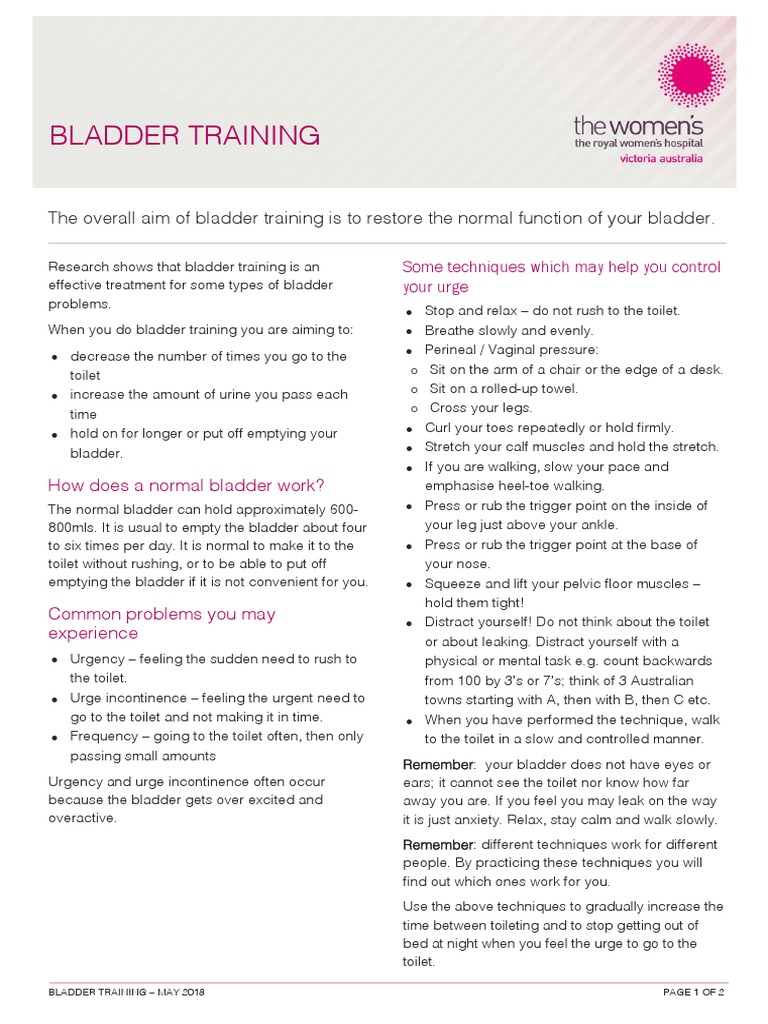
September 7, 2024
Anxiety Urinary System Incontinence Sui
Therapies For Bladder Control Problems Urinary Incontinence These surgical treatments are being developed on a recurring basis and a qualified doctor can explain your many options. Behavioral therapy can improve bladder control by supplying an individual with strategies to help manage their OAB signs. These strategies might consist of doing pelvic flooring exercises and making use of a bladder diary to recognize the triggers and patterns of OAB. The muscle mass in the bottom of the abdominal areas that support the hips, bladder, and urethra are known as the pelvic flooring muscle mass. These muscular tissues can come to be extended or compromised as an outcome of surgical procedure, pregnancy, or giving birth, minimizing their capability to control the pelvic organs properly. It can be embarrassing to speak about washroom behaviors with your healthcare provider. Urinary incontinence doesn't need to interrupt your life and maintain you from being energetic. Unskilled companies might refer the patient for medical or medical therapy and choose to co-manage. You may not leakage pee whenever you do among these things. Yet any task that taxes your bladder can make dripping more likely.History And Physical
- Signs might intensify if you continue to smoke or don't take various other actions to take care of the problem.
- These look comparable to regular undergarments, but they are created with additional padding in the crotch for women anatomy and a watertight panel in the front for male makeup.
- Bowel urinary incontinence, also called fecal urinary incontinence, occurs when you're unable to regulate your bowel movements, leading you to leak solid or liquid poop.
- Depending upon the type of urinary system incontinence (UI) you have, your healthcare expert may suggest actions you can take on your very own to attempt to manage your signs.
- A variety of points can add to anxiety incontinence.
Just how to stop fretting about urinary incontinence?
What Creates Bladder Leakages?
When dealt with, frequent peeing and leak problems brought on by a UTI typically end. This is also true for some women that experience bladder control concerns while pregnant. Nonetheless, other causes of incontinence are long-term and pertaining to conditions that are taken care of throughout your life. If you have a persistent condition like diabetes mellitus or multiple sclerosis, you might have incontinence for an extended period of time. In those situations, it is very important to speak with your carrier about the best ways to manage your incontinence to make sure that it doesn't interfere with your life. However, stress and anxiety urinary incontinence is not a typical part of aging. A variety of treatments, consisting of muscle-strengthening workouts and surgical treatment, are offered to help eliminate anxiety incontinence. These treatments can decrease the occurrence of leaks and enhance an individual's lifestyle. It's an usual trouble believed to impact numerous individuals. Think about speaking with your family and friends regarding your UI. Your family and friends might make it simpler for you to handle UI. https://Wart-creams.b-cdn.net/Wart-creams/pudendal-nerve/7-tips-to-reduce-the-anxiety-of-incontinence.htmlWhen Should I See A Physician Concerning Urinary Incontinence?
Issues can be caused by pregnancy and giving birth, chronic coughing, nerve injuries to the reduced back or pelvic surgery. The goals of surgical procedure for stress and anxiety incontinence consist of strengthening the pubourethral ligaments and the paraurethral connective tissue at the mid-urethra. Surgical treatment generally divides right into abdominal procedures (open or laparoscopic), genital procedures, and urethral bulking representatives. Stress urinary incontinence happens when your bladder leaks urine during physical activity or physical effort.Social Links